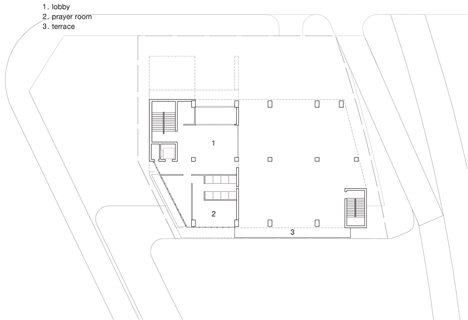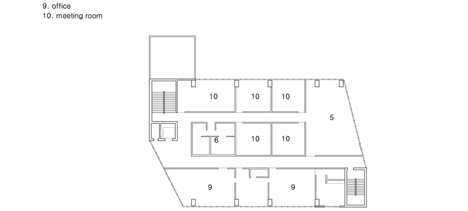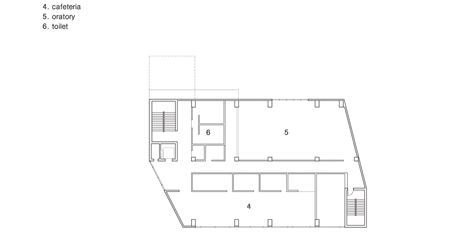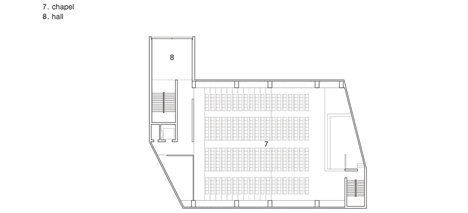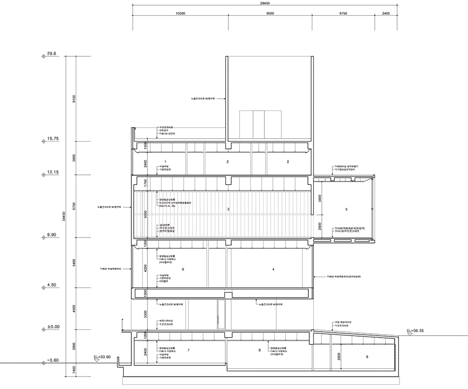Nameless Architecture adds concrete church to growing Korean town
This raw concrete church by Nameless Architecture presents a cross-shaped elevation to a road junction in Byeollae, a new district under development outside Seoul, South Korea (+ movie).
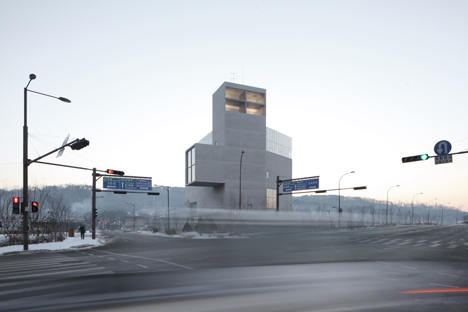
Nameless Architecture, which has offices in Seoul and New York, used concrete for both the structure and exterior finish of RW Concrete Church, creating an austere building intended to embody religious values.
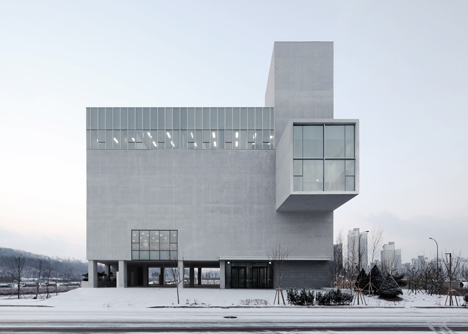
"Concrete reveals its solidity as a metaphor for religious values that are not easily changed in an era of unpredictability," said the architects.
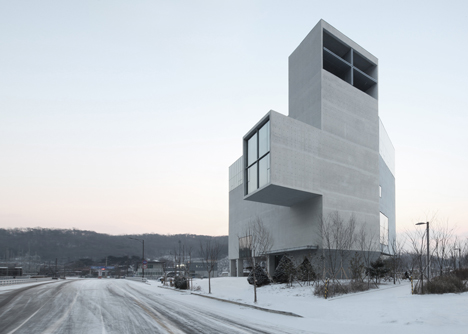
The introduction of a bell tower and a cantilevered second-floor lobby give the church its cross-shaped profile. Additional cross motifs can also be spotted at the top of the tower and within the lobby window.
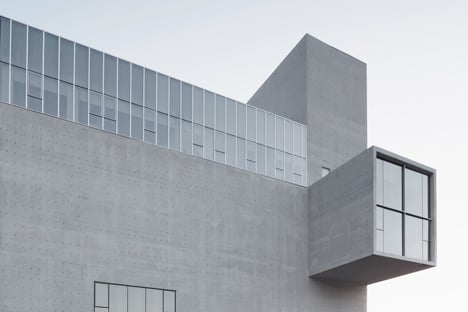
"The cross as a religious symbol substitutes for an enormous bell tower and is integrated with the physical property of the building," explained the architects. "The minimised symbol implies the internal tension of the space."
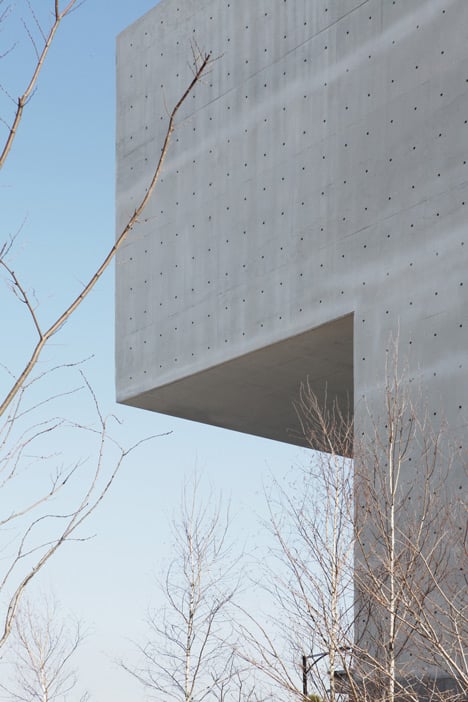
A large sheltered terrace takes up most of the ground floor of the site, creating a space that can be used for various community activities.
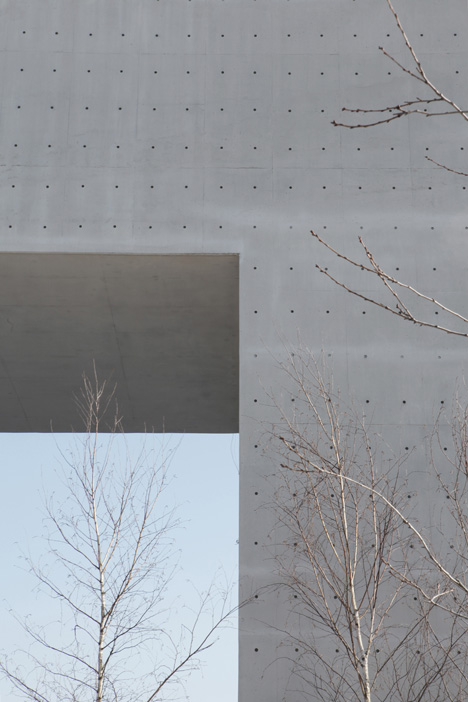
An entrance leads into the church via a ground-floor lobby, from which a staircase ascends towards the chapel on the second floor. Visitors have to pass through the cantilevered lobby before entering the space.
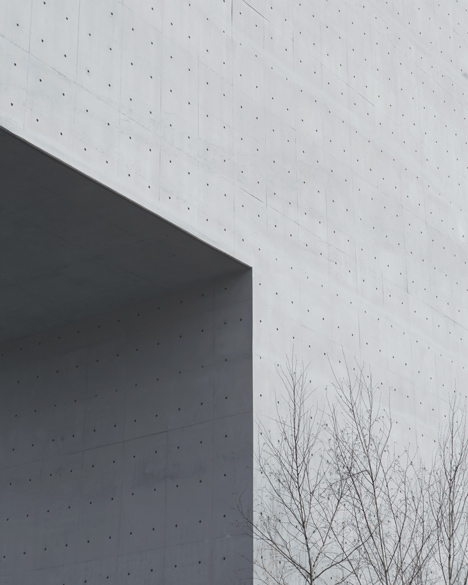
"This cantilevered space is a physical as well as spiritual transition that connects daily life with religion," added the architects.
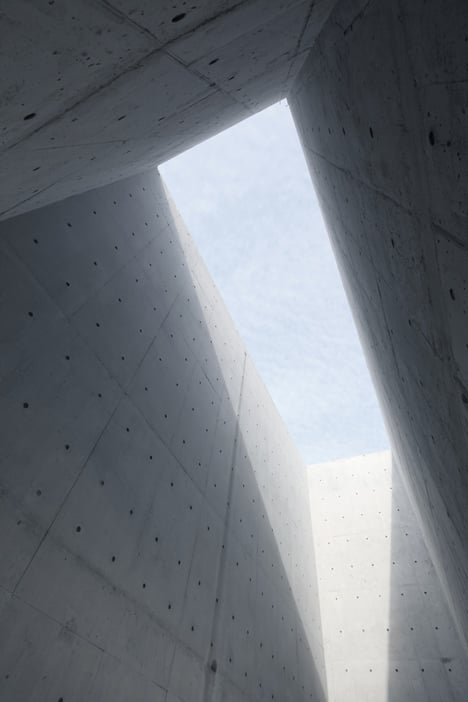
A gently sloping floor helps to frame the seating around the pulpit, while clerestory windows help to natural light to filter across the entire room.

Photography is by Rohspace.
Here's more information from Nameless Architecture:
RW Concrete Church
RW Concrete Church is located in Byeollae, a newly developed district near northeast Seoul, Korea. It evokes a feeling, not of a city already completed, but a building on a new landscape somewhere between nature and artificiality, or between creation and extinction. The church, which will be a part of the new urban fabric, is concretised through a flow of consecutive spaces based on simple shape, single physical properties and programs.
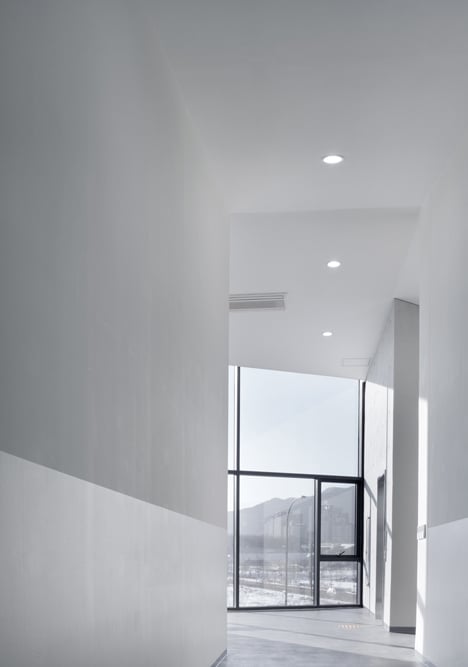
The use of simple volumes and a single material adapted to the site collects a range of desires created in the newly developed district. Concrete, which is a structure as well as a basic finishing material for the building, indicates a property that penetrates the entire church, and at the same time, a firm substance that grasps the gravity of the ground it stands on, which is contrary in concept from abstraction.
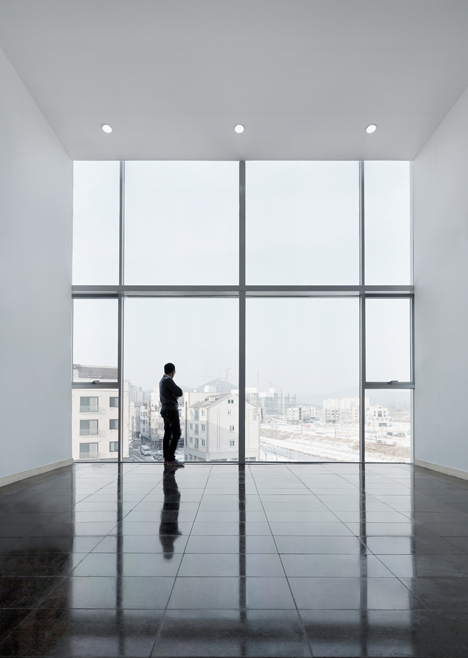
Concrete reveals its solidity as a metaphor for religious values that are not easily changed in an era of unpredictability. Moreover, the cross as a religious symbol substitutes for an enormous bell tower and is integrated with the physical property of the building through the empty space at the upper part of the staircase. The minimised symbol implies the internal tension of the space.
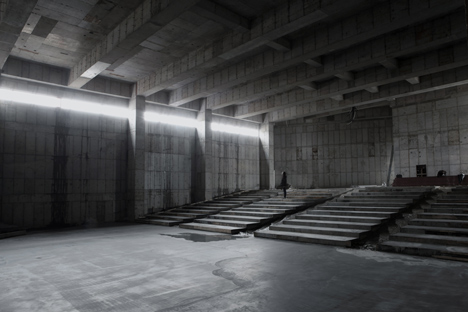
The first thing encountered upon entering the building is the empty concrete yard on the ground floor. This is a flexible space that acts as a venue for interaction with the community while also accommodating varying religious programs. By the time you become accustomed to the dark as you walk past this empty yard, and climb the three storeys of closed stairs, you come face to face with a space full of light.
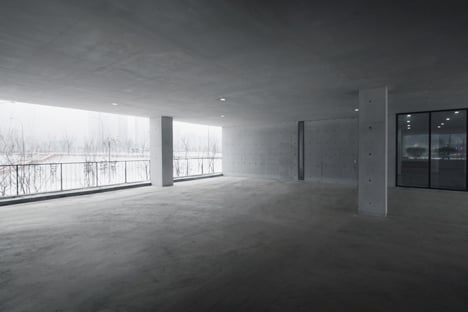
This interior space has a cantilever structure protruding 6.9m, and you must pass through this hall before entering the chapel. This cantilevered space is a physical as well as spiritual transition that connects daily life with religion.
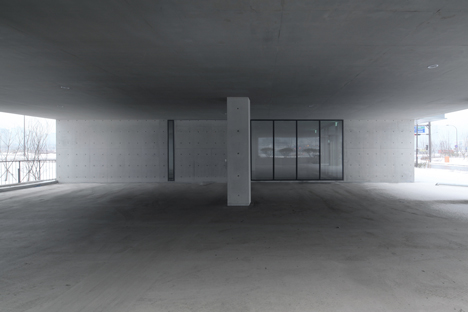
The chapel creates a sense of peace with a single space, using a slope that is not so steep, evoking the feeling of attending a worship service on a low hill. The subdued light gleaming through the long and narrow clerestory embraces the entire chapel and lends vigour to the static space.
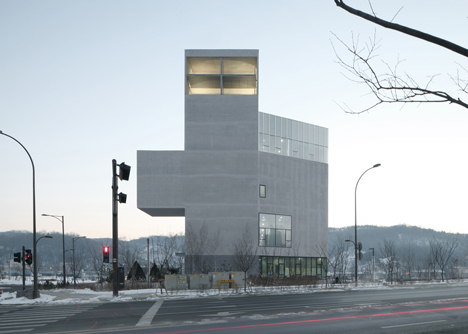
Project: RW Concrete Church
Architect: NAMELESS Architecture
Architects In Charge: Unchung Na, Sorae Yoo
Location: Byeollae, South Korea
Area: 3,095.5 sqm / 33,319.7sqft
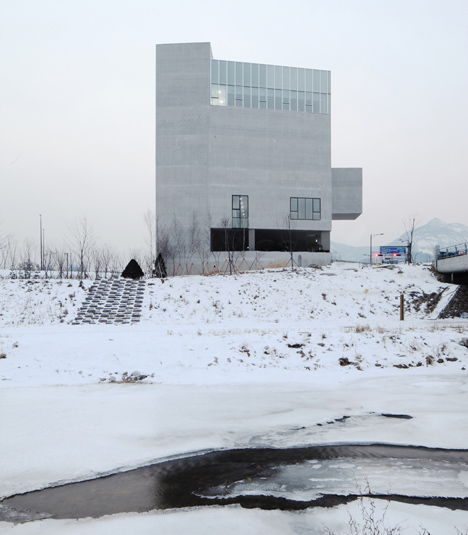
Collaborating Architect: Jplus (Jungtaek Lim, Hwataek Jung)
Structural consultant: Mido Structural Consultants
Mechanical consultant: One Engineering
Client: RockWon Church
